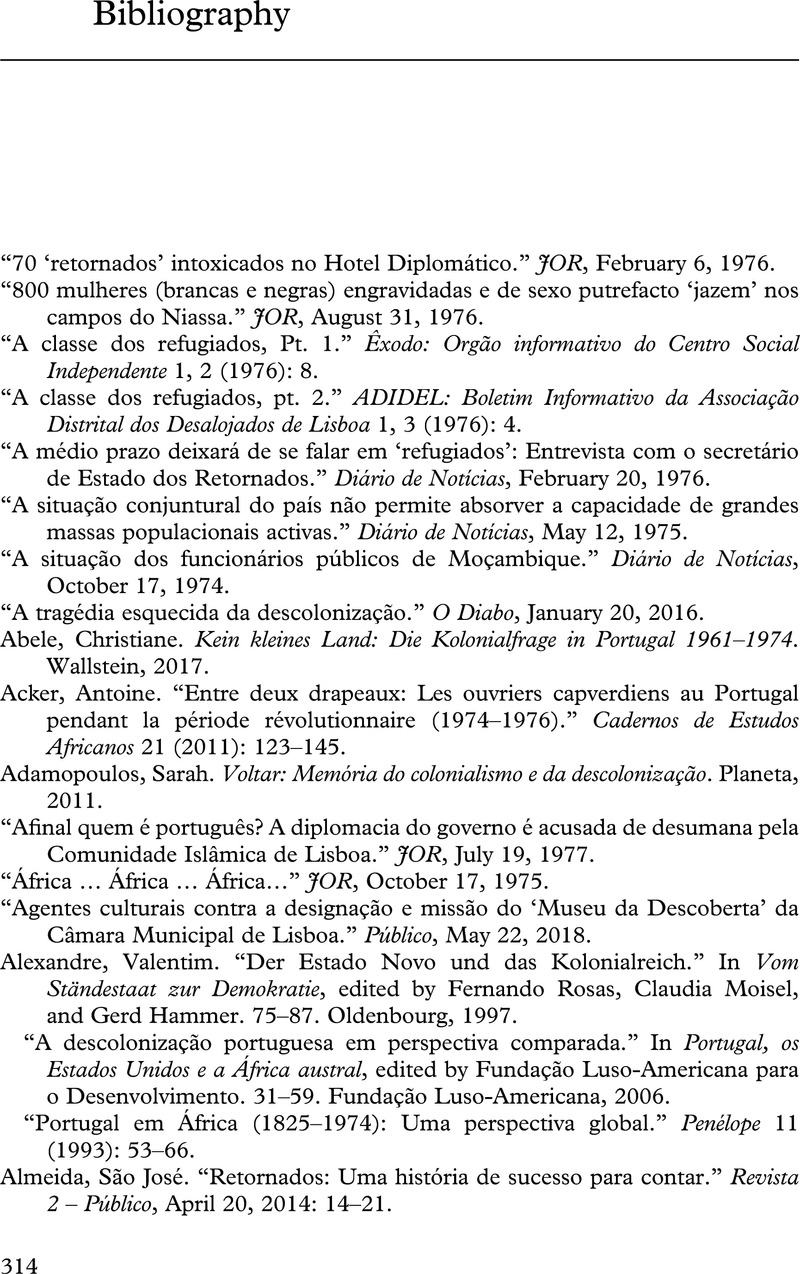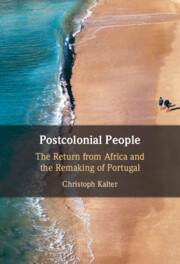Book contents
- Postcolonial People
- Postcolonial People
- Copyright page
- Dedication
- Epigraph
- Contents
- Figures
- Tables
- Preface
- Acknowledgments
- Note on Translations, Archival Sources, Prices, and Language
- Abbreviations
- Introduction
- 1 Returnees or Refugees?
- 2 Hotels for the Homeless
- 3 Making Claims and Taking Action
- 4 The Return of the Return
- Conclusion
- Bibliography
- Index
- References
Bibliography
Published online by Cambridge University Press: 05 May 2022
- Postcolonial People
- Postcolonial People
- Copyright page
- Dedication
- Epigraph
- Contents
- Figures
- Tables
- Preface
- Acknowledgments
- Note on Translations, Archival Sources, Prices, and Language
- Abbreviations
- Introduction
- 1 Returnees or Refugees?
- 2 Hotels for the Homeless
- 3 Making Claims and Taking Action
- 4 The Return of the Return
- Conclusion
- Bibliography
- Index
- References
Summary

- Type
- Chapter
- Information
- Postcolonial PeopleThe Return from Africa and the Remaking of Portugal, pp. 314 - 348Publisher: Cambridge University PressPrint publication year: 2022



